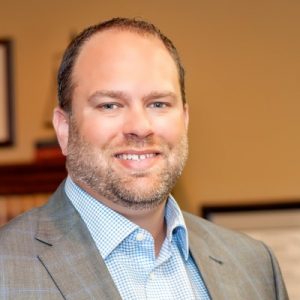Tom Hanks was wrong. There really is crying in baseball. At least there was on July 4, 1939, when Lou Gehrig addressed Yankees fans (and the world) one last time in a moving speech from Yankee Stadium. Although the purpose of his speech was to say goodbye, he opened by saying, “Fans, for the past two weeks you have been reading about the bad break I got. Yet today I consider myself the luckiest man on the face of this earth.”
Gehrig earned the nickname The Iron Horse by playing in 2,130 consecutive games, a record that stood for almost 60 years. He was the definition of dependable. He didn’t just show up night after night—he came to compete. You don’t wind up with a lifetime batting average of .340 by just showing up.
But then, out of the blue, in 1938 his performance seemed a little off. His hits were down, strike outs were up, and power numbers slipped. In 1939, he played in only eight games. His seemingly super-human abilities were completely gone. Less than two years later, Gehrig died from ALS, now known as Lou Gehrig’s Disease. He was only 37 when he died.
In this space I usually encourage readers to plan ahead. “You Need A Plan” is not only my motto; it’s the title of my book. But I’ve been around long enough to know that you can’t plan for everything. Who could have predicted The Iron Horse would be dead at 37, only two years after playing in his last major league baseball game?
Short of death, one of the most devastating things that could ever hit a family is the sudden need for long-term care. From a financial perspective, the need for long-term care can actually devastate a family’s stability even more than death. The average price of nursing home care in Arkansas is steadily approaching $6,000 per month. Very few families have the monthly income to cash flow those costs while also meeting other necessary expenses, so they’re forced to liquidate other assets to keep up. Sure, planning ahead is always better, but what if you didn’t? Is there any hope?
There is hope, even for those who fail to plan ahead for long-term care expenses. For most families, if they are armed with the right knowledge and information, Medicaid benefits will cover a large percentage of a person’s nursing home costs. And they can qualify for coverage without spending every penny on the nursing home first and without putting their home at risk.
For married couples with one spouse in need of nursing home care and the other spouse at home, the Medicaid spousal protection rules are far more generous than most people think as long as you use those rules in the right way. With the right planning, a married couple can protect the home, personal property, and virtually all of the financial accounts and still obtain Medicaid coverage to help with the nursing home charges.
For single individuals in need of long-term care, the spousal protection rules won’t be of any use, but a strong understanding of the Medicaid gifting rules often allows applicants to save anywhere from one-half to two-thirds of their assets and still obtain Medicaid coverage to help with nursing home charges.
The worst thing to do in either of these situations—single or married—is to simply private pay the nursing home charges until the money is almost gone. But that’s exactly what many people think you’re supposed to do! You will always protect more the quicker you act. Incomplete and downright inaccurate information is prevalent in the area of long-term care Medicaid. Being told “you don’t qualify” by a friend, or even by a well-meaning individual who works in the industry, should not stop you from doing your research, talking to the right people, and exploring every possible option for coverage.
This is one of the areas where elder law attorneys, especially ones who specialize in long-term care planning like those at The Elrod Firm, can make a huge difference. Check out our website, grab a copy of my book, and find out for yourself what makes us different. And if your family is already in the middle of an emergency, don’t wait. Call today to set up a strategy session at no charge.



